Hours after Nestle decided to recall Maggi from shelves across India, the scrambling Swiss food conglomerate flew out its global CEO, Paul Bulcke, to lead its damage control exercise.
“This is the result of an unfortunate confusion,” Bulcke explained to a packed room of reporters in New Delhi on June 05. ”We have decided to take the brand off the market and over 1,000 batches have been tested. We do not add monosodium glutamate (MSG) in Maggi noodles, they are safe for consumption.”
While Nestle remains firm on its commitment that Maggi does not contain either lead or MSG, Bulcke said that there was a lack of clarity on the manner in which the authorities in India have carried out tests that have shown the presence of these substances.
“Unfortunately, recent developments and unfounded concerns about the product have led to an environment of confusion for the consumer, to such an extent that we have decided to withdraw the product off the shelves, despite the product being safe,” Nestle said in a statement.
Nonetheless, some ingredients like groundnut protein, onion powder and wheat flour contain glutamate naturally. The company has now decided to remove “No added MSG” from the Maggi label. ”We have 8,000 people all over working to check safety of our products. In India, we have 400 people in seven laboratories doing millions of tests every year,” Bulcke said.
Independent analysis
Meanwhile, Nestle has submitted samples of Maggi noodles from almost 600 product batches to an external laboratory for independent analysis.
“These samples represent around 125 million packets. We have also tested samples from almost 1,000 batches at our own laboratory which is accredited by the authorities. All the results of these internal and external tests show that lead levels are well within the limits specified by food regulations and that Maggi noodles are safe to eat,” Nestle said on its website.
Here are two samples:
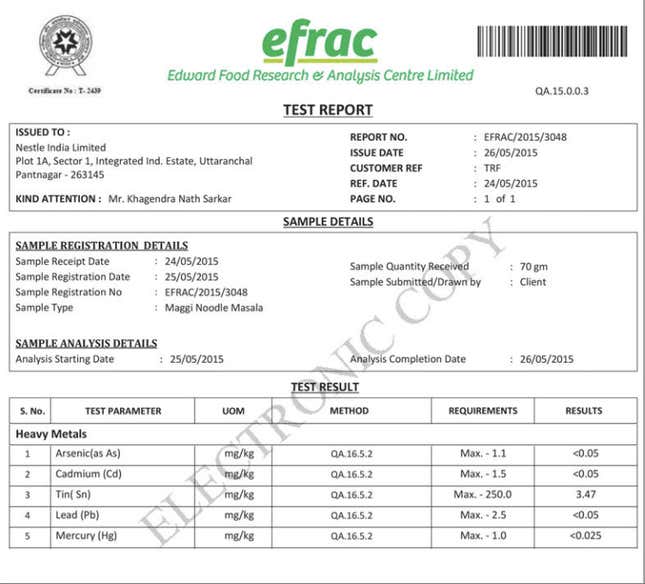
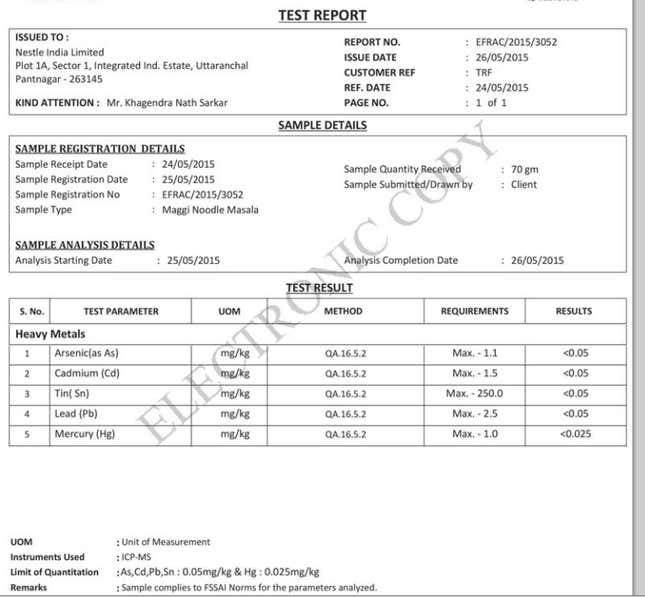
Major violations
Even as Bulcke fielded his defence of Maggi, the Food Safety and Standards Authority of India (FSSAI) issued a fresh order to Nestle on June 05, outlining three major violations:
- Presence of lead detected in the product in excess of the maximum permissible levels of 2.5 ppm (part per million)
- Misleading labelling information on the package reading “No added MSG”
- Release of a non-standardised food product in the market, that is “Maggi Oats Masala Noodles with Tastemaker,” without risk assessment and grant of product approval
This latest order follows a series of setbacks for Maggi noodles—Nestle India’s cash cow, which contributes about 30% of its revenues. Late last month, Uttar Pradesh’s Food Safety and Drug Administration found high levels of MSG and lead in some of the Maggi samples they tested. The authorities then recalled a batch of Maggi.
Since then, more states like Delhi, Jammu & Kashmir, Tamil Nadu, Gujarat and Uttarakhand have banned the product. On June 04, Nestle, in a late evening release (pdf), announced it will withdraw the product from all across the country.
Bulcke, however, did not answer any specific questions about the impact on the company’s revenues or indicate any clarity on the timeline for the recall.
Belgian in-charge
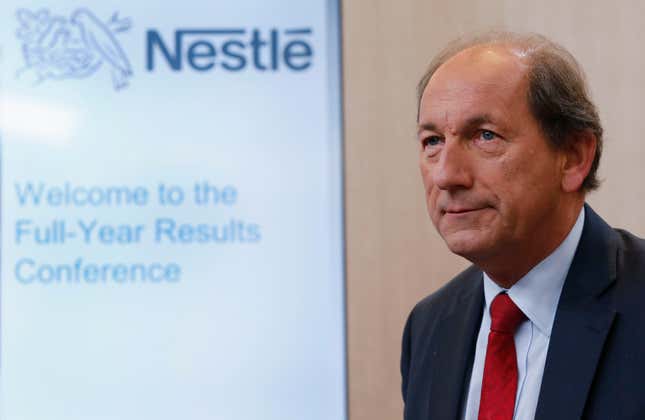
The 61-year-old Belgian has been the CEO of Nestle since 2008.
In 2014, under his direction, Nestle announced an 8 billion Swiss franc ($8.5 billion) share buy-back programme of the Swiss dairy major.
He joined the company in 1979 and held positions in South America, Eastern Europe and North America before taking up the top job at Nestle.
Last year, Nestle cut Bulcke’s pay by 7% after the company’s growth rate fell the lowest since 2009. And now the fiasco in India is likely to put more pressure on him.
After all, Maggi contributes some 30% of Nestle India’s revenue, according to a January 2015 research report by French banking and financial services firm, Societe Generale. It is the second largest revenue contributor after milk products and nutrition, which forms 43% of the sales. And, Maggi was among India’s five most trusted, brands according to the 2014 Brand Equity survey.
Investor panic
After displaying some initial resilience, investors, too, have begun losing their faith in Nestle India: Between May 28 and June 4, Nestle India’s share have dropped 15% on the Bombay Stock Exchange. In the same period, the Sensex fell 2.52%.
This has caused significant damage to the company’s market capitalisation, or the valuation of a firm based on the market price of its stock and the total number of shares. In the seven days between May 27, 2015 to June 4, 2015 the market cap erased Rs10,162.7 crore.
On May 27, the market cap was at Rs68,116.26 crore, which dropped to Rs57,953.56 crore on June 04.
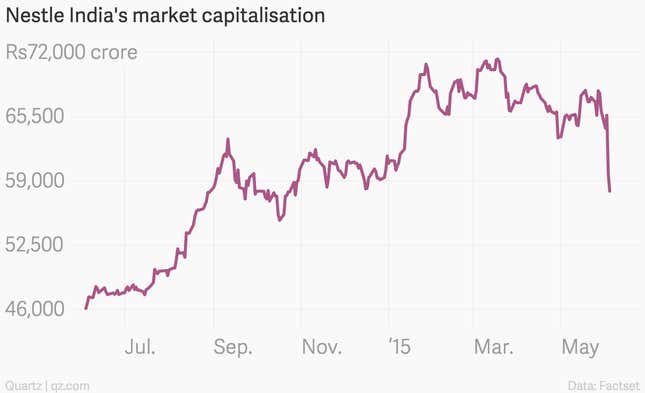
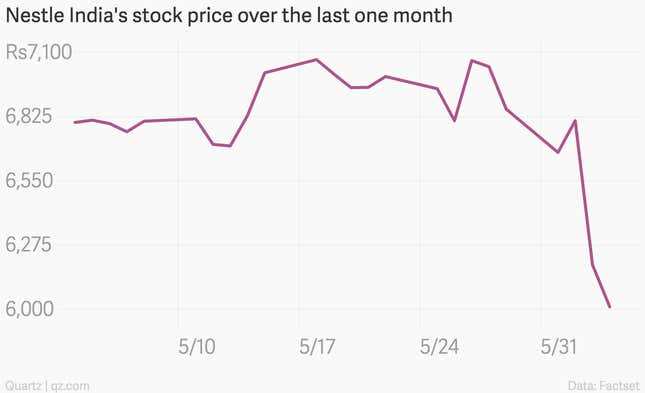
But Bulcke seemed unfazed about the market’s reaction: He said that consumers are their priority, and not share prices.
And neither consumers, nor the company, are quite sure when Maggi could be back on India’s shelves.
